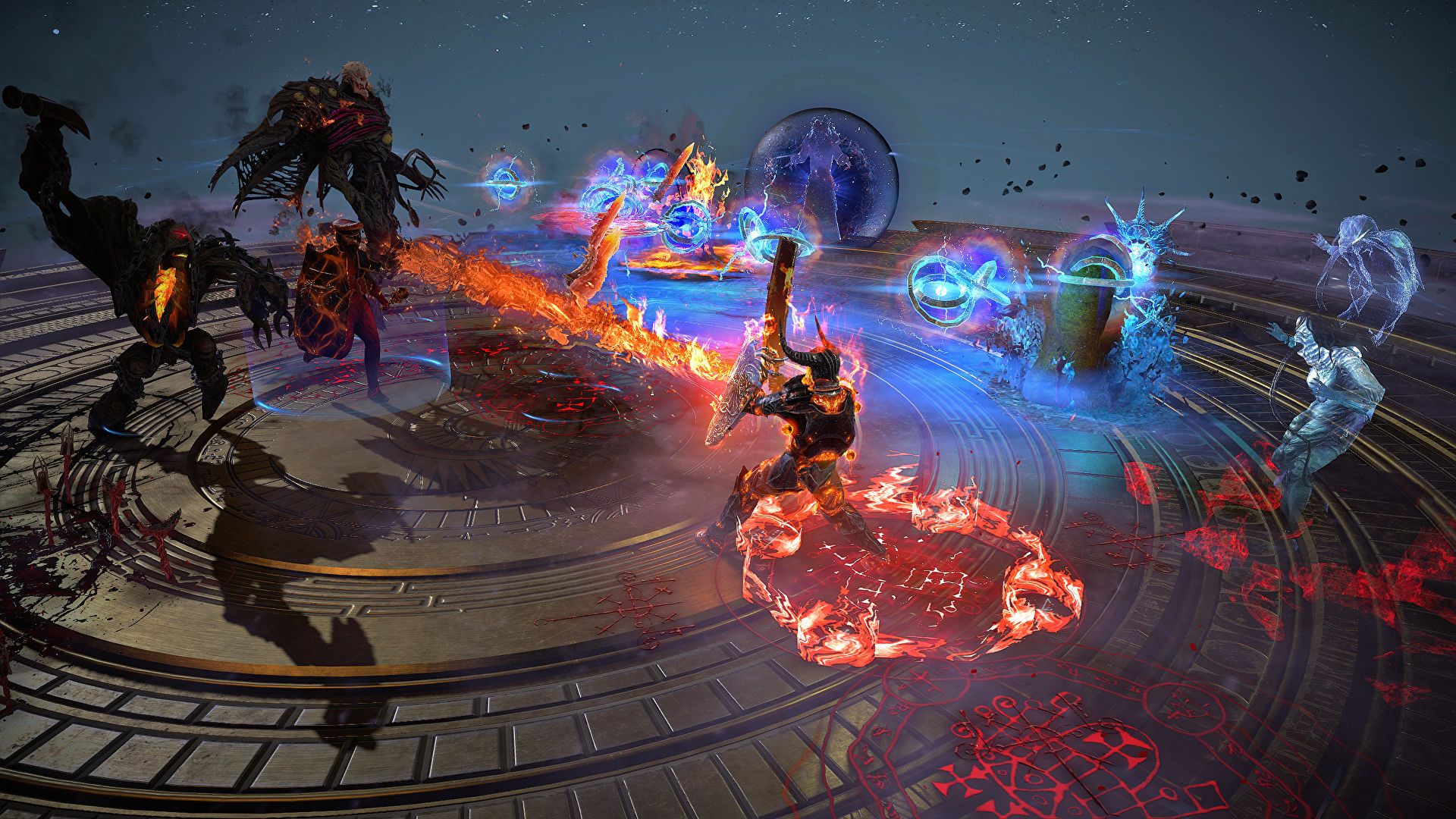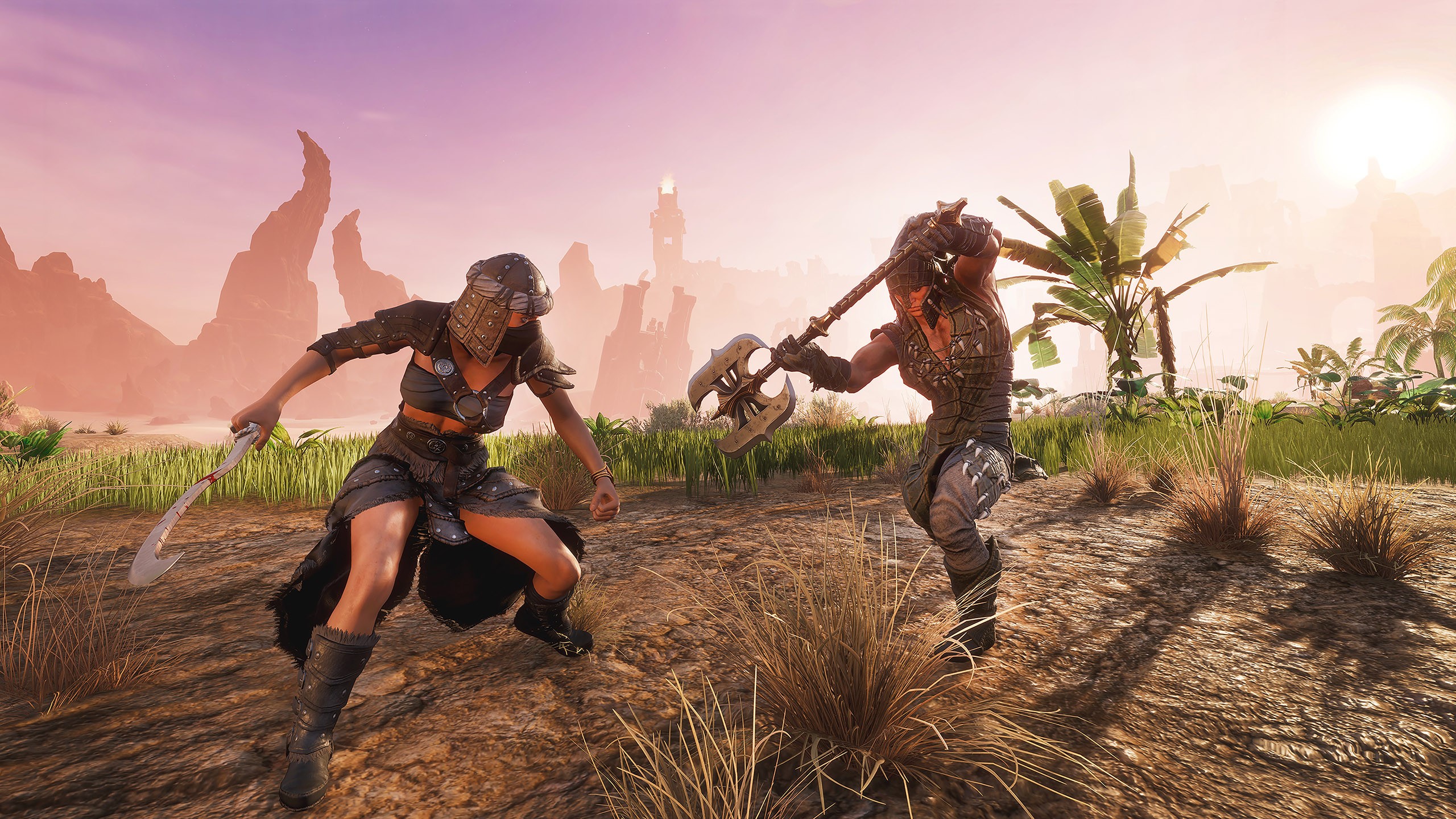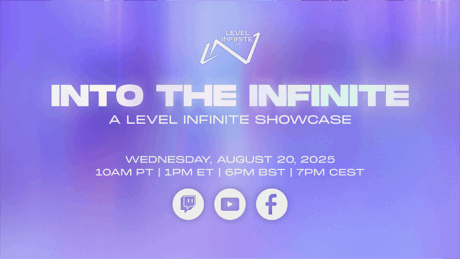Global CEO Michelle Liu talks more about the company’s strategy and growth at GamesBeat Summit 2022
Andrea Rene (AR): Hello, everyone, I’m Andrea Rene, one of the cofounders of What’s Good Games, a video games media company. I’m glad to be back here at GamesBeat Summit 2022. And I’m even more honored and excited to be joined by one of the most powerful women in video games that you’ve probably never talked to because she’s just so dang busy. Please welcome Michelle Liu, Tencent Games Global CEO. Michelle, it’s such a privilege to talk to you today. How have you been? How are things going over in China?
Michelle Liu (ML): Thanks, Andrea. Well, my story is actually quite simple. I’m a veteran of the gaming industry and I have been in the industry for over 20 years, and I joined Tencent at the end of 2013, I have been working at Tencent for more than eight years. Before moving to global business, I was in charge of the mobile publishing business. In 2019, I transferred to lead the global gaming business.
AR: When you think about Tencent as a global games player, it’s quite a massive scale to be working on these days. What would you describe as Tencent Games vision for the global games market? And what you guys are hoping to achieve with your partners?
ML: Wow, that’s a good question. Our vision for our global gaming business, at Tencent is to build a global ecosystem that integrates gaming, developing and publishing systems by closely connecting, and aligning the development and publishing functions.
You know, the ecosystem will help us to gather deeper understanding into local users, and better connect game content and the users, it’s certainly beneficial for us to create more and more high-quality games. Then, based on the understanding of users’ requirements and the exploration of the new technologies, we work with developers and even users to explore new gaming experiences. In the long run, we believe gaming will bring more energy and fun to the world and potentially, people’s lives, there is still a lot of room for us to explore how games can bring more meaningful things to the world.
AR: I mean, there’s a lot to unpack there, because clearly, Tencent is such a massive player in the global market, you are working with developers of all different kinds. And as you already mentioned, you used to work in mobile games, mobile games becoming such a huge part of the gaming industry, but also, the rise of the new console generations would have brought new technology. As somebody who gets to work with publishers of all different kinds, are you seeing developers sort of lean to one technology platform over the other? Or is it kind of all mixed around?
ML: I think yes, generally, we have built good relationships with developers all over the world. And our collaboration model is built around supporting our studio partners to achieve their own growth objectives. So we’ve focused on establishing a shareholder long term vision with studios and then work to give them the resources and the creative autonomy necessary to build toward it.ㅤ
Each studio has a unique history and development culture, which we aim to keep by taking a tailored approach to collaboration, instead of building a one size fits all model. So we are quite confident that Tencent has built successful partnerships over the past decade, notable with the companies like Riot, Supercell, Epic and more. In those partnerships, the success is quite self-driven. The core teams of those companies are clear on what they want to accomplish, whether it’s launching new IPs, growing the team, or building new technology. And Tencent’s row is to enable, empower, and support with the resources and expertise we have.
AR: I think a lot of people from the outside looking in, see Tencent sometimes as just this big behemoth with a big bank account to invest in all of these different gaming companies. But you have a much more hands-on approach, as you just discussed, this idea that you want to work closely with your partners and also want to tailor each individual partnership to what that partner needs.
It’s really fascinating to me, because as a such a massive global company, you have an expertise that a lot of other gaming companies don’t have, how does the expertise that Tencent has, in the global market help some of your partners?
ML: Speaking of this, many of the studios we are working with closely now have a strong ambition to create next-gen games and IP. And yeah, they are more expansive and immersive than anything they’ve created in the past. So on the Tencent side, we offer a variety of resources and capabilities to have them to achieve those aims.
And I think the first one is, you know, much of our success in the China market is due to the mobile development and operations expertise. And in recent years, we’ve partnered with the top global IPs to bring more mobile games to the market. As more games look to go cross-platform, we can assist in this area, I believe.
And secondly, for studios building live service titles, we have experts in-house that have crafted live operations plans, assessing content production needs, monetization models, and so on. this draws on our deep experience in games for years, and even decades, in some cases, through a GaaS model. And certainly, we can leverage the global reach of Tencent to push regional marketing and publishing initiatives, which most studios and the developers may struggle to achieve on their own.
A specific example would be Path of Exile, we’ve worked with GGG (Grinding Gear Games), boosting marketing in the North American market through influencer collaboration, PR and community resources. We helped GGG hit new heights in terms of player base. And lastly, technical wise, studios can get technical support and solutions from Tencent, like IT structure and data analytics solutions. We are currently working with Funcom on data solutions for Conan Exiles to better understand the player behaviors and improve ongoing operations.
AR: There’s just so much that Tencent does, it feels like there’s nothing that you don’t do. It’s really interesting set against the backdrop of all of the acquisitions that have been happening in the video games industry. But you have just you know, at length described all the different ways that Tencent has helped their partners in addition to also acquiring studios. Do you think that Tencent is going to continue to keep partnering with other publishers and other game makers? Or are you guys more focused on bringing more studios internal?

ML: Definitely, we will open our minds and corporate with all the best developers around the world, and that’s what we want to build. So what we want to build is a production system all around the world. So we work based on what we are good at and we are open to collaborating with all the best partners and building up a better ecosystem and exploring the new look of the gaming industry.
AR: It seems like there’s not really a part of the games industry that Tencent as a global business hasn’t really touched. But is there a specific genre or type of game, or an innovation that’s coming or technology that you as a business are interested in potentially exploring more? Like, for example, you know, exploring more into AR or VR or going more into, you know, toys to life or any other specific category that Tencent as a business is like, you know, we’re really got our eye on this one.
ML: Yes, that’s a good topic. At GDC this year, one of the Tencent AI Labs showcases was to implement AI technology in player education, and game level generation in our last game, which shows how AI improves the gaming experience and again, production efficiency.
Combined with the new technology, we can explore more, but at the same time, I believe that on Tencent’s side, we do have a lot of capabilities that can support our partners. And now we see that we have some GaaS capability, live ops, and esports, all are core capabilities that we can collaborate with partners. So from this arm, I think we can do more cross-platform production and have more regions for publishing.
AR: Cross-platform play is something I personally find really exciting. I know a lot of gamers are very happy that cross-platform is finally here. But it seems that some studios are still having trouble implementing it. Do you think that cross-platform is going to become ubiquitous? Or do you think there will always be a place for online play that is not cross-platform?
ML: I think definitely, cross-platform is the direction. We work out the plan for cross-platform models for older games, and you know that all the things for the players is for them to be more free and can explore freely in the game.
So I think the platform will not limit players, and content that can be supplied to the users and let them freely explore the game is the right direction. It must be these things that we can explore, and put together in our partnership groups that some are good additions to PC and console capabilities and the others may be better in the mobile arena. I think both are good, and what we are facing is to let them leverage the expertise from each other and empower each other and to that direction, that it will be the cross-platform model.
AR: Well, I think that sounds exciting. I think a lot of people listening are like cross-platform for everybody, let’s do it! I do want to touch on the fact that you mentioned a campaign that you did here in North America with GGG and using influencers and as somebody who works in media, I always find it really fascinating the different types of campaigns that publishers and video game developers are doing now for marketing, because the marketing on a global scale is quite diverse.
Do you find that your publishers or even Tencent’s own internal campaigns tend to go one way now? Are you focusing you know, on traditional media buys or are you starting to put more of your budgets into more grassroots types of campaigns like influencer marketing, like streaming on platforms like YouTube and Twitch, even things like Tik-Tok right, other kinds of social media campaigns to market your games?
ML: The gaming industry is an always evolving industry. So I think the users start changing and the product content is changing, and yes, the media itself are changing. So I think that’s a good opportunity for us to explore, what’s the new models, what’s the new mechanics we can try, not only for influencers and streaming only.
We do face a lot of changes and that’s what we are thinking. From my personal perspective, Tencent is doing a lot of systemic restructuring in our global business. We are building teams that are sitting in the regions and serving on the ground, we are building now, 12 fully functioning local publishing teams this year, and there will be the regional publisher to manage the publishing activities in each local market.
That means that we are paying more attention to the local users and what they need or what’s their requirements. And so on this part, on one side, we will pay more attention to what’s the users needs, and through what kind of media to come into contact with the product. On this part, I think that esports is a new thing, and not just as a marketing channel, but also creating new creative content for the users.
On the other hand, we are building our central function centre in the HQ, and offer a series of service capabilities and support the regional teams so that we can build a better operating system and better support the users in how they can have the sufficient media and channels to come into contact with the product and gaming content directly and more freely.

AR: I’m curious, these regional centres that you mentioned, did the pandemic make it more difficult to get those teams up and running? Or were they really a byproduct of needing to get people more mobile in their more local, localised communities?
ML: For the pandemic issue, older regional teams have some new challenges and local problems, but I think we have lots of new products, new games to launch, and local teams, they’re struggling during the pandemic. But at the same time, they are building up the resources and depending on the HQ team’s support, and still pushing for a lot of progress.
Recently, we have had some tournaments locally for PUBG Mobile and have good feedback from the users. I think it’s not an easy thing in the pandemic period but everything we do to find a new approach like in esports and physical events in some regions, still we can do it online. And we will collect more online users for our tournaments and it’s a broad space that we can explore, it’s still a big space and a good opportunity for us to explore.
AR: I feel like there’s a whole nother conversation we could have about esports and clearly Tencent’s global role in it, which is a big one. But instead, I’m going to talk about something that I’m very interested in and that’s you. Getting to see women in CEO positions is pretty rare. And so I think it’s an amazing opportunity that I got some time on your schedule to chat with you.
I know you have a long list of responsibilities at your job, but one of those responsibilities in your life is also being a mom. I became a mom last year and let me tell you work-life balance is very challenging. And you as a busy CEO must have some tricks up your sleeve. Can you share any pro tips for me?
ML: Oh, congratulations, Andrea! I was often asked the same question. Actually, this is also a difficult question that I’ve been facing, and it needs to be explored all the time. It’s challenging for all working moms and dads to manage work and a family I believe. And if I could suggest, there are four points I want to share.
The very first thing I want to say is companionship is true love. Always try your best to spend some time together with your kids, no matter how busy you are, your time commitment may be different for the different stages during your kids’ growth, but always make sure you can spend the most important moments with your kids and family, and then you can feel the love for each other.
And the second is trying to understand and support the kids. You and I, we are in the industry of gaming so we have more opportunities to understand the younger generation and their needs. So it’s important to sit down next to them, look to them and exchange your thoughts. That’s a more positive attitude it’s always better to be a friend as opposed to being in charge. And I believe each child has their unique talent and potential. So trust them, respect their personality and their strengths, and support their attempts and decisions than be the boss and make the decisions.
Lastly, try to have more communication between the couple, well-aligned between the mom and dad. Most of you may be busy but try your best to understand and support and back up each other, I believe a good family atmosphere will certainly have kids grow better.
AR: Absolutely. It’s such a good reminder for us all to you know, take time to focus on family, we sometimes get so caught up in the excitement of our jobs that, you know, our family is like hey, what about me? Do you ever get the opportunity to play games with your kids?
ML: Yeah, yes, definitely. We played some games on the Switch or online games sometimes. But you know, yeah, they’re older teens, they have their own friends. So yeah, we don’t always play together but I think it’s it’s a good opportunity for us to enjoy family time.
AR: It must be so cool for them to have a mom who works in video games. Do they think it’s really cool? Or do they think that you’re a big nerd like my kids gonna think of me someday?
ML: I think it’s quite good. So I always have some topics to discuss with them and to share opinions even with their friends.
AR: Well, one point for the cool mom factor! We’re almost out of time with our discussion today and I wanted to ask if there was anything else that you are really excited about or want everybody listening and watching to know about where Tencent Games is going as a global business and what you are hoping to achieve?
ML: At Tencent, we are at the beginning stage of the global business, so we are still learning and we are still thinking things over and trying to make everything clear and better. In the long run, I think we want to bring more energy to the industry and to the users, and we definitely believe that the gaming industry is very good, has big potential and a lot of technologies, revolutions, and a lot of new boundaries we can reach.
That is what our aim is to be in the gaming industry. So I think, what’s our thinking what we are doing is to explore more with all the developers and the users, what can make our game industry more meaningful.
AR: Well, it’s wonderful to hear that you guys are taking such an active role in your partnerships and your internal studios and really pushing the medium forwards, looking toward what’s the next big innovation coming in, how can we not only support our partners but support players and communities not just on a global scale, but also on a small regional and local scale as well. Michelle, thank you so much for taking the time to chat with me here at GamesBeat Summit. I wish you the best of luck and I hope that you have fun with the next game that you play with your kids.
ML: Thank you, Andrea, thank you for having me. I’m so happy to be here, until next time!


